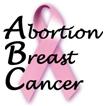Carroll Letter
Breast cancer and abortion
By Patrick Carroll
The article Breast cancer and abortion:collaborative reanalysis of data from 53 epidemiological studies... (The Lancet Vol 363) has its credibility impaired by the failure throughout the world to fully record induced abortions.
This study places most weight on studies where abortion is measured prospectively before any diagnosis of breast cancer is made among the sample studied and the larger among these studies are especially weighted. Even in this country very few women declare induced abortions in such studies and the numbers of women both in the cancer group and in the control group of the Goldacre study in England, the largest study covered by this reanalysis, found only a small fraction of the women, that could have been expected to have had abortions from what is known from national incidence data, had a declared abortion history in either the cancer group or the control group. The median year of cancer diagnosis in this study was 1986. Cancers diagnosed then are likely to correspond to pregnancy related events such as live births and induced abortions that took place much earlier as in the 1960s. If there is such a large measure of under recording in an English study it can be expected there is even more under-recording in other countries. Great Britain is unusual in that there was liberalisation of the Abortion law at an early date when the 1967 Abortion Act took effect in 1968. Other countries liberalised later and many of the induced abortions relevant to this Breast cancer investigation in other countries were illegal and even less likely to be declared than the abortions among women in a British study.
National breast cancer incidence data in England is now showing an increase that is concentrated in the age group 50+ and the pregnancy related events that correspond to that can be investigated using national data that is correlational or ecological for successive birth cohorts of women given age specific data including data for abortions and nulliparous abortions. This also helps to explain the steeper reverse gradient in Breast cancer incidence across social class now observed in the UK.
Yours sincerely
Patrick Carroll
PAPRI Pension And Population Research Institute
35 Canonbury Road
London N1 2DG
tel 020 7354 5667
fax 020 7226 6601
charity registration number in England 327942
References:
1. Beral V, Bull D, Doll R, Peto R, Reeves G. Collaborative Group of Hormonal Factors in Breast Cancer. Breast cancer and abortion: collaborative reanalysis of data from 53 epidemiological studies, including 83,000 women with breast cancer from 16 countries. Lancet 2004;363:1007-16.
2. Goldacre MJ, Kurina LM, Seagroatt V, Yeaates. Abortion and breast cancer: a case-control record linkage study. J Epidemiol Community Health 2001;55:336-337.


